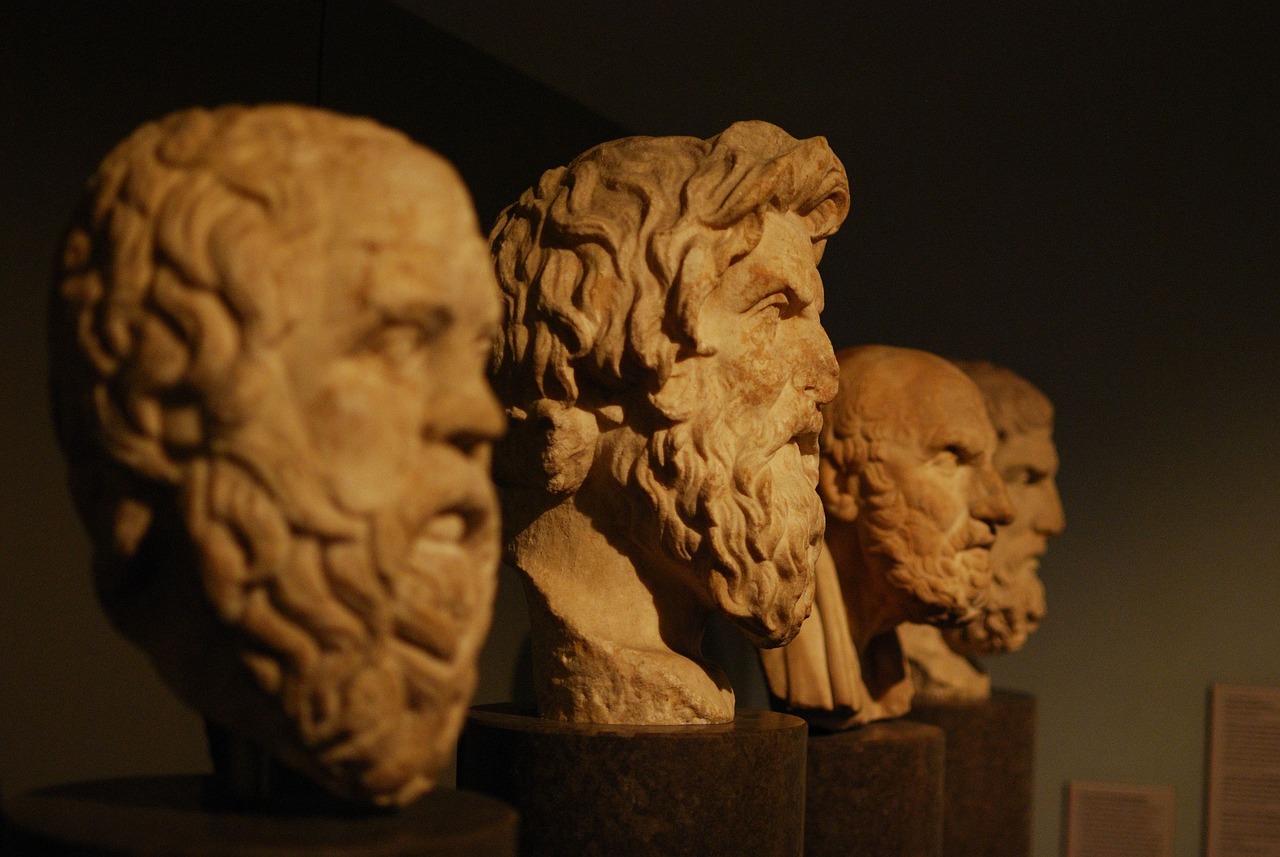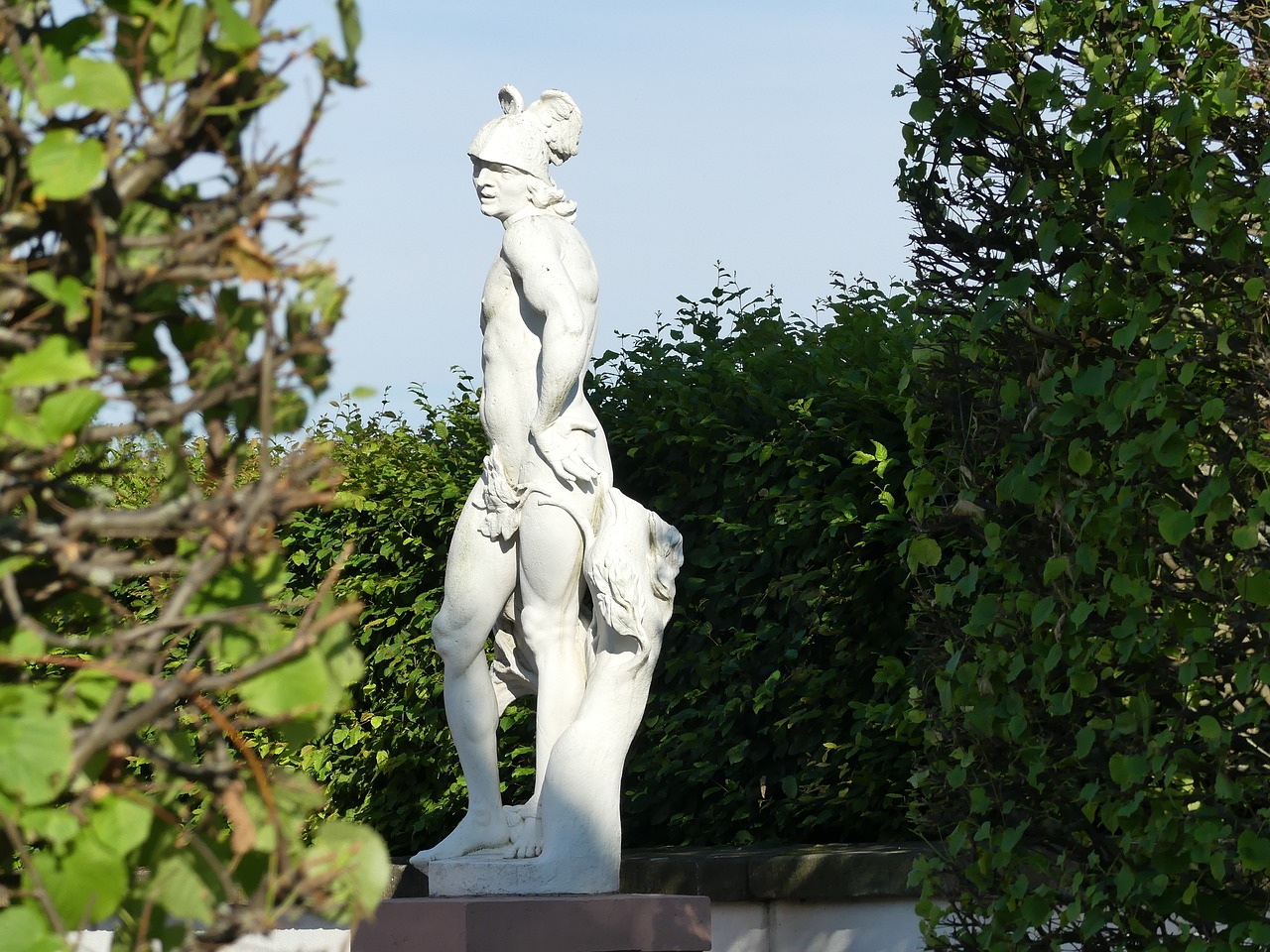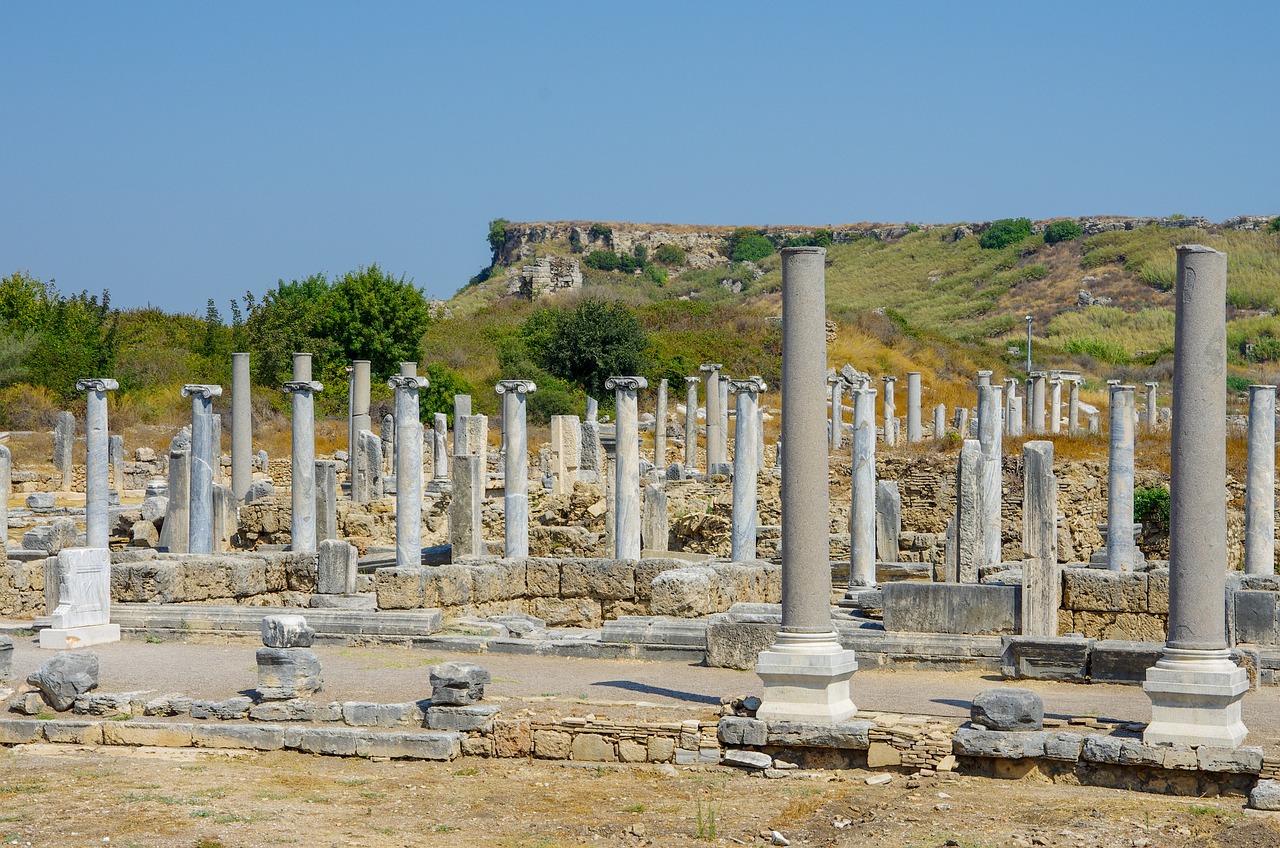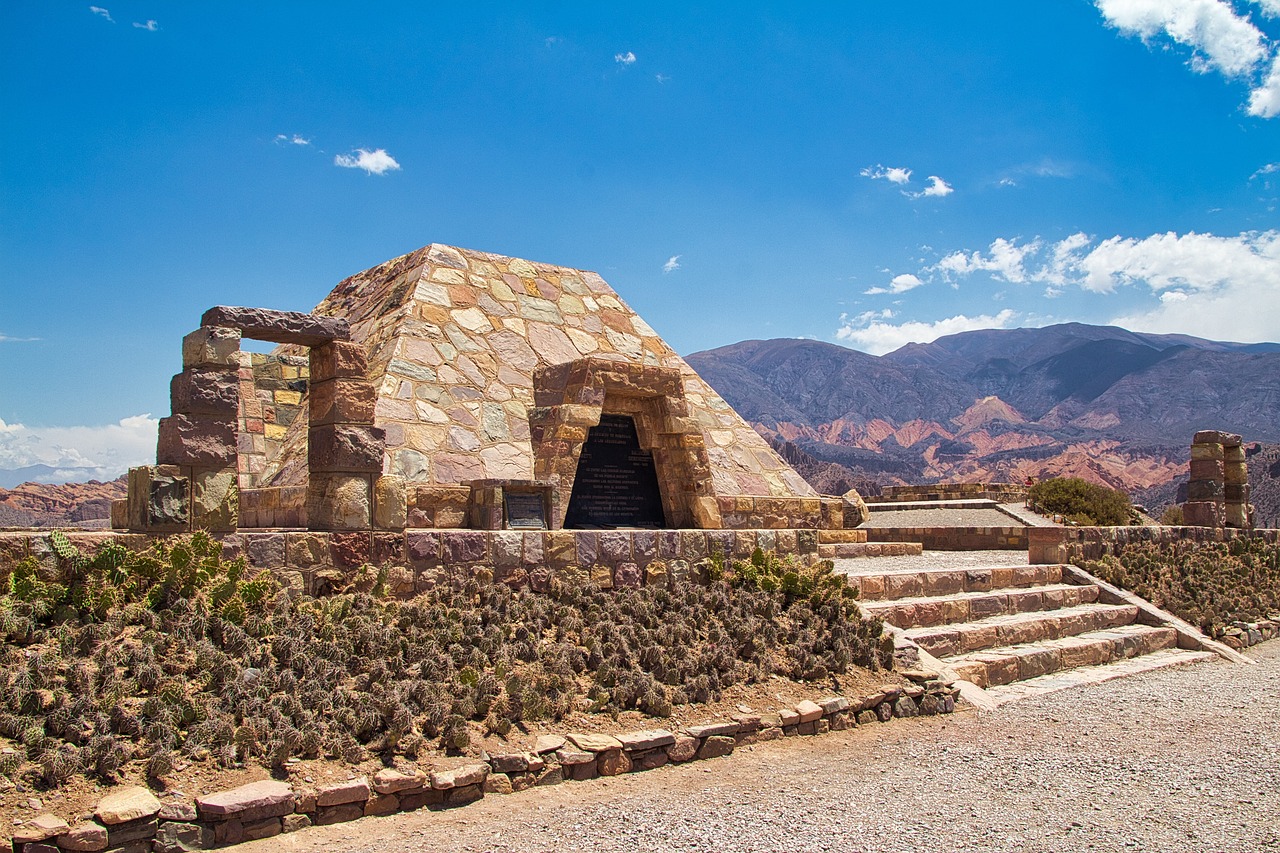The Secrets of Ancient Civilizations' Mythical Stories
Ancient civilizations have left behind a treasure trove of mythical stories that continue to captivate and intrigue us to this day. These tales, passed down through generations, offer a glimpse into the beliefs, values, and cultures of societies long gone. From the majestic Egyptian myths to the epic sagas of Norse gods, each civilization has its own unique stories that hold hidden meanings and profound significance.
Delving into Egyptian mythology, we uncover the creation story of Ra, the sun god, and the adventures of Osiris and Isis. These myths not only entertained but also served to explain the natural world and the mysteries of life and death. The elaborate pantheon of Egyptian gods and goddesses reflected the complex religious beliefs and societal structures of ancient Egypt.
In Greek mythology, we are transported to a world of gods and heroes, where Zeus reigns supreme and Athena embodies wisdom and warfare. The stories of Hercules's labors and Perseus's quests have inspired countless works of art and literature, shaping the cultural landscape of ancient Greece and beyond.
Embark on a journey into Norse mythology, where Odin, Thor, and Loki rule over a realm of frost giants and valiant warriors. The epic sagas of the Norse gods, filled with themes of honor, destiny, and cosmic battles, provide insights into the Viking culture and their worldview steeped in bravery and fate.
Unraveling the mystical narratives of Mesoamerican civilizations like the Maya, Aztec, and Inca, we encounter tales of creation, warfare, and sacrifice. These stories, often intertwined with religious rituals and beliefs, offer a glimpse into the spiritual practices and cosmologies of ancient Mesoamerica.
Chinese mythology presents a diverse tapestry of legends and folklore, from the mythical figures of Nuwa and Fuxi to the adventurous exploits of the Monkey King. These tales, steeped in symbolism and moral teachings, reflect the rich cultural heritage and values of China through the ages.
Dive into the colorful mythology of India, where gods and goddesses like Vishnu, Shiva, and Durga command reverence and awe. The timeless epics of the Ramayana and Mahabharata narrate tales of love, war, and divine intervention, embodying the spiritual and philosophical traditions of ancient India.
Native American mythology reveals a deep connection to nature and the spiritual realm, with stories of the Great Spirit, animal spirits, and the balance between humans and the natural world. These oral traditions, passed down through generations, showcase the diverse beliefs and traditions of indigenous tribes across the Americas.
Exploring the rich mythic heritage of Africa, we encounter creation myths, trickster tales, and stories of powerful deities like Anansi the Spider and the Orishas. These myths, rooted in the cultural diversity of the continent, offer a glimpse into the spiritual wisdom and artistic traditions of African civilizations.

Egyptian Mythology
Exploring the mysterious and enchanting tales passed down through generations from ancient civilizations worldwide, uncovering their hidden meanings and cultural significance.
Delve into the rich tapestry of Egyptian myths, from the creation story of Ra to the adventures of Osiris and Isis, shedding light on the religious beliefs and societal values of ancient Egypt.
Ancient Egyptian mythology is a treasure trove of fascinating stories that offer insights into the beliefs and values of this ancient civilization. At the heart of Egyptian mythology lies the powerful figure of Ra, the sun god, whose journey across the sky symbolizes creation and renewal. The myth of Osiris and Isis, with its themes of death, resurrection, and eternal life, reflects the Egyptians' deep reverence for the cycle of life and death.
Moreover, Egyptian mythology is replete with intricate symbolism and allegory, with each deity and myth carrying layers of meaning that reveal the Egyptians' understanding of the world and their place in it. The pantheon of gods and goddesses, from the wise Thoth to the fierce Sekhmet, represents different aspects of nature and human experience, providing a rich tapestry of divine beings that shaped Egyptian religious practices and rituals.
One of the most enduring symbols of Egyptian mythology is the concept of Ma'at, the principle of truth, balance, and order that governed the universe. The belief in Ma'at guided the Egyptians in their daily lives, emphasizing the importance of harmony and justice in society. The story of the weighing of the heart in the afterlife, where the heart of the deceased is judged against the feather of Ma'at, underscores the Egyptians' belief in moral accountability and the eternal nature of the soul.
Through exploring the myths and legends of ancient Egypt, we gain a deeper understanding of the cultural and spiritual heritage of this remarkable civilization. The tales of gods and pharaohs, of creation and destruction, of magic and mystery, continue to captivate and inspire us, offering a window into the worldview of the ancient Egyptians and the enduring legacy of their mythical stories.

Greek Mythology
Greek mythology is a treasure trove of captivating stories that have stood the test of time, influencing art, literature, and culture across the globe. At the heart of Greek mythology are the powerful gods and goddesses who ruled over the cosmos with all their might and whims. From Zeus, the king of the gods, to Athena, the wise goddess of wisdom and warfare, each deity embodied different aspects of human nature and the world around us.
One of the most famous figures in Greek mythology is Hercules, the mighty hero known for his incredible strength and legendary adventures. His twelve labors, which included slaying the Nemean Lion and capturing the Golden Hind, showcase his bravery and determination in overcoming seemingly impossible challenges. The stories of Hercules have inspired countless works of art and literature, symbolizing the triumph of heroism over adversity.
Another iconic tale from Greek mythology is the story of Perseus and the Gorgon Medusa. Armed with a reflective shield and a magical sword, Perseus embarks on a perilous quest to slay the monstrous Medusa and claim her head as a prize. This epic encounter highlights the theme of courage in the face of danger and the triumph of good over evil, resonating with audiences through the ages.
Moreover, the myth of Pandora's Box serves as a cautionary tale about the consequences of curiosity and disobedience. When Pandora opens the forbidden box, she releases all the evils into the world, leaving only hope trapped inside. This story reflects the ancient Greeks' beliefs about the dual nature of humanity and the importance of self-control and moderation in life.
In addition to these well-known myths, Greek mythology is also filled with lesser-known stories that delve into the complexities of human emotions and relationships. The tragic love story of Orpheus and Eurydice, the epic journey of Jason and the Argonauts in search of the Golden Fleece, and the adventures of the winged horse Pegasus all add layers of depth and meaning to the rich tapestry of Greek mythology.

Norse Mythology
Norse mythology, originating from the ancient Germanic tribes of Northern Europe, is a realm filled with powerful deities, epic sagas, and intricate cosmology. At the heart of Norse mythology are the Æsir and Vanir gods, such as Odin, the All-Father, known for his wisdom and pursuit of knowledge; Thor, the thunder god wielding his mighty hammer Mjölnir; and Loki, the mischievous trickster stirring up chaos.
These deities are not just characters in stories but embody various aspects of nature and human experience, reflecting the harsh yet beautiful landscapes of the Viking world. The Norse myths are not mere entertainment but serve as a way to understand the complexities of life, death, and fate in a world where survival depended on strength, courage, and honor.
One of the most famous Norse myths is the tale of Ragnarok, the apocalyptic battle that foretells the end of the world and the rebirth of a new one. This cataclysmic event underscores the cyclical nature of existence, where destruction is necessary for renewal and growth, echoing the harsh realities of the natural world.
Moreover, the Norse sagas are filled with themes of heroism, loyalty, and destiny, as seen in the epic adventures of legendary figures like Sigurd, Beowulf, and the Valkyries who choose the bravest warriors for Valhalla, the hall of the slain. These stories inspire courage and resilience in the face of adversity, showing that even in a world of uncertainty and chaos, one can find purpose and meaning through honor and valor.
Overall, Norse mythology offers a glimpse into the ancient Norse culture and worldview, where gods, giants, and humans coexist in a complex tapestry of fate and free will. Exploring these myths not only reveals the beliefs and values of the Viking people but also invites us to ponder our own place in the grand scheme of existence, reminding us that even in the darkest of times, there is always a flicker of hope and a chance for renewal.

Mesoamerican Mythology
Exploring the mysterious and enchanting tales passed down through generations from ancient civilizations worldwide, uncovering their hidden meanings and cultural significance.
Embark on a journey through the mystical narratives of the Maya, Aztec, and Inca civilizations, where myths intertwine with history and spirituality. These ancient Mesoamerican cultures were deeply rooted in their beliefs, shaping their worldview and societal structures.
One of the most prominent aspects of Mesoamerican mythology is the concept of creation, where gods and cosmic forces come together to form the world as we know it. The stories of Quetzalcoatl, Tezcatlipoca, and Huitzilopochtli depict the intricate balance between creation and destruction, life and death.
Warfare and sacrifice were central themes in Mesoamerican myths, reflecting the harsh realities of ancient civilizations. The legends of brave warriors, fierce battles, and ritual offerings shed light on the cultural practices and religious ceremonies of these societies.
Moreover, the intricate pantheon of deities in Mesoamerican mythology showcases a diverse range of gods and goddesses, each representing different aspects of life and nature. From the benevolent Quetzalcoatl to the fearsome Tlaloc, these divine beings played crucial roles in the daily lives and rituals of the people.
Through the exploration of Mesoamerican mythology, we gain a deeper understanding of the spiritual beliefs and cultural traditions that shaped the ancient civilizations of the Americas. The stories passed down through generations continue to captivate and inspire, offering a glimpse into a world where gods walked among mortals and legends were born.
1. What is the significance of Mesoamerican mythology in understanding ancient civilizations?
2. How did Mesoamerican myths influence the cultural practices and beliefs of the Maya, Aztec, and Inca civilizations?
3. What role did deities like Quetzalcoatl, Tezcatlipoca, and Huitzilopochtli play in Mesoamerican mythology?
4. How were warfare and sacrifice portrayed in Mesoamerican myths, and what do they reveal about the society of that time?
5. What are some of the key differences between Mesoamerican mythology and other mythological traditions around the world?

Chinese Mythology
Exploring the mysterious and enchanting tales passed down through generations from ancient civilizations worldwide, uncovering their hidden meanings and cultural significance.
Chinese mythology is a fascinating tapestry of legends and folklore that reflect the rich cultural heritage of China. From the mythical figures of Nuwa and Fuxi, who are believed to be the creators of humanity, to the legendary Monkey King and the Eight Immortals, these stories are deeply ingrained in Chinese tradition.
One of the most famous tales from Chinese mythology is the story of the Monkey King, also known as Sun Wukong. This mischievous and powerful character embarks on a journey to seek immortality and enlightenment, facing numerous challenges and adventures along the way. The Monkey King's story is not just a thrilling adventure but also carries moral lessons about perseverance, loyalty, and the quest for wisdom.
Another prominent figure in Chinese mythology is the Eight Immortals, a group of legendary beings with extraordinary powers who represent various virtues and aspects of life. Each Immortal has a unique story and symbolizes different qualities, such as longevity, prosperity, and harmony. Their adventures and interactions with mortals offer insights into Chinese cultural values and beliefs.
Chinese mythology is also rich in symbolism and allegory, with many stories serving as metaphors for ethical principles, natural phenomena, and historical events. The tales of gods and heroes in Chinese mythology are not just entertainment but serve as a means to convey important messages and teachings to the audience.
Overall, Chinese mythology is a treasure trove of ancient wisdom and creativity, providing a glimpse into the spiritual beliefs, moral values, and cultural identity of the Chinese people throughout history.

Indian Mythology
Indian mythology is a vibrant tapestry woven with a myriad of gods, goddesses, and epic tales that have captivated generations. At the heart of Indian mythology are the powerful deities such as Vishnu, the preserver, Shiva, the destroyer, and Durga, the warrior goddess. These divine figures embody different aspects of life and serve as symbols of cosmic balance and harmony.
The Ramayana and the Mahabharata stand as monumental epics in Indian mythology, narrating timeless stories of love, valor, and righteousness. These epic poems delve into complex moral dilemmas, familial conflicts, and the eternal struggle between good and evil, resonating with audiences across centuries.
In Indian mythology, each god and goddess is associated with unique symbols, animals, and attributes that reflect their character and role in the cosmic order. For example, Lakshmi is often depicted with lotus flowers symbolizing beauty and prosperity, while Ganesha carries a broken tusk symbolizing wisdom and sacrifice.
The concept of dharma, or righteous duty, is central to Indian mythology, guiding individuals on the path of moral and ethical living. Through the stories of gods and heroes facing moral dilemmas and ethical challenges, Indian mythology imparts valuable lessons on virtue, honor, and the consequences of one's actions.
Moreover, Indian mythology is replete with colorful narratives of mystical creatures, celestial beings, and magical realms that blur the lines between reality and fantasy. From the divine serpent Shesha that upholds the universe to the mischievous Yakshas guarding hidden treasures, these mythical beings add depth and intrigue to the rich tapestry of Indian folklore.

Native American Mythology
The rich tapestry of Native American mythology is woven with spiritual beliefs and oral traditions that have been passed down through generations. These stories often revolve around the Great Spirit, a divine being that is central to many Native American cosmologies. In addition to the Great Spirit, Native American mythology is replete with tales of animal spirits, embodying the connection between humans and the natural world.
One prominent figure in Native American mythology is Coyote, a trickster character found in the folklore of various tribes. Coyote is known for his cunning and mischievous nature, often teaching important lessons through his antics. Another common motif in Native American myths is the theme of transformation, where humans or animals undergo profound changes to achieve a higher state of being.
Many Native American tribes also have creation stories that explain the origins of the world and humanity. These narratives often involve supernatural beings shaping the earth and populating it with plants, animals, and people. The intricate relationship between humans, nature, and the spiritual realm is a recurring theme in Native American mythology, emphasizing the interconnectedness of all living beings.
Through storytelling, song, and ritual, Native American mythology serves as a cultural touchstone, preserving tribal heritage and wisdom. These myths offer insights into the values, beliefs, and worldview of indigenous peoples, celebrating the diversity and resilience of Native American cultures.

